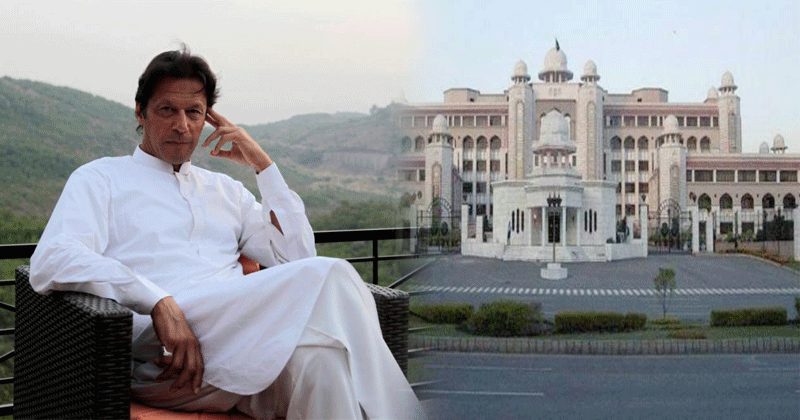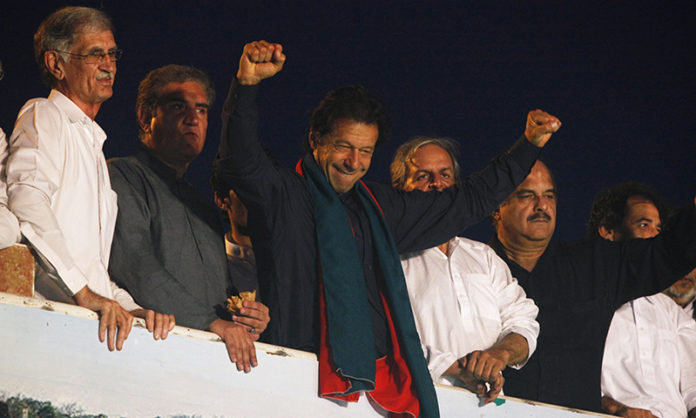Dear Readers,
Struggling for 22 years to break the hold of status quo parties over politics and the strangle-hold of corrupt leaders over the destiny of the nation, Imran Khan reached the pinnacle of national politics. Having won the July 25 elections, he was officially named as the candidate for Prime Minister (PM) by the PTI’s MNAs-elect on Aug 6. The new PM will face some very daunting challenges and for his dream of “Naya Pakistan” to become reality, he will have to take some harsh measures. After a decade of loot and plunder by the last two “democratic” govts one can now hope that Pakistan will set out on the road to true progress. The new govt would require great ingenuity to meet these challenges, external challenges will be demanding considering the foreign policy baggage that the PML (N) govt has left behind. The new govt has taken over at a time when decades of bad governance and corruption have wreaked havoc in all sectors. The elite political class subverted the state institutions, particularly the bureaucracy to serve its own political interests, corrupt bureaucrats were only too eager to help lining their pockets in the process. Willful and systematic plunder of national wealth, pervasive corruption and inefficiency had become the hallmarks of governance. There will be no easy solutions for the new govt as these issues are decades-old and deep-rooted, it will need strong political will and the cooperation of many to resolve them. For the benefit of readers I am reproducing my article titled “SETTING THE TONE FOR THE FUTURE”.
Without significant progress on the political scene for years Imran Khan was mercilessly mocked by many, none so viciously as Declan Walsh, the Guardian’s former correspondent for Pakistan. He went the ultimate in ridiculing Imran in an August 31, 2005 article as “a miserable politician whose ideas and affiliations since entering politics in 1996 have swerved and skidded like a rickshaw in a rain shower”. I would like to invite my friend Declan to come and ascertain for himself the genuine political appeal and adulation the PTI chairman now universally commands in the country, certainly among friends but surprisingly among some erstwhile foes alike. One should not scribe one’s perceptions from the vibes obtaining on the cocktail circuit. The popular vote of 16 million plus far exceeds the number of seats the Pakistan Tehreek-e-Insaf (PTI) should have got on a commensurate basis.
Imran Khan laid out an outline of what his economic and governance reforms as well as his foreign policy priorities a day after the July 25 elections, the positive response, particularly on the social media, was huge. After all the frenetic electoral activity, his calm pep talk touched on almost every aspect of an effective governance system. The manifesto of his party was re-scaled on a prophetic virtual model. Passionate about the welfare of citizens, equality before law, justice and education, he called for uplifting the underprivileged, promising provision for their basic needs and jobs.
Mentioning the difficulties the people of Balochistan faced, he praised their courage for coming out to vote despite the dire imminent threat from terrorism. Imran Khan’s words will be a source of renewed hope and solace for the people of this neglected province. Calling for national unity, the cricketer in him demonstrated a true sportsman spirit. Offering an enquiry into the Opposition’s allegations of vote rigging he called for accountability, starting with himself. Despite being the target of personal attacks and character assassination all through his political career, Imran Khan promised not to engage in political vendetta against his detractors. The national leader resolved to unite the people of Pakistan, making policies for the poor and giving rights to even those who do menial work in homes. A symbol of refusing to give up, he will continue to struggle for achieving national goals. That Imran will abide by his pledge to refrain from political victimizing should not be in doubt; he has a history of living up to his promises.
With our foreign reserves at their lowest, coming under further stress by the day and the current account deficit widening and eroding the reserves, there is talk about approaching the International Monetary Fund (IMF). The bailout package estimated at US$10-15 billion by Finance Minister-designate Asad Umar. An economic crisis looms on the horizon. Rumours about a US$ 2 billion Chinese loan are still doing the rounds. The new government will have to find ways to offset this problem, Imran Khan explicitly mentioned concentrating efforts for combating tax evasion, strengthening trade relations with neighbors, and reforming dysfunctional state institutions responsible for the economic downturn will give some comfort to the people.
Endemic in Pakistan, corruption has spread like a cancer, in the government, police force, etc., bureaucracy has become a significant risk to all commercial activities. Imran Khan has promised to make NAB, FIA and other institutions truly independent, strengthening the scope of NAB to ensure accountability. Unfortunately, selective accountability remained the order of the day with previous governments, accountability was not carried out in a non-partisan manner. In April this year just before the general elections and against strong advice by political aides, he created political sensation by dismissing 20 lawmakers of his own party found selling votes in the Senate elections. While accountability will be a huge challenge, he must do what is right, using it as a unique opportunity to make our present accountability mechanism more formidable to cleanse this nation of the corrupt and the undesirables.

Promising to cut government expenses, he pointed to the gigantic PM’s House and said “I would be embarrassed to live in it”, Imran’s decision not to live in the PM’s House will translate into huge savings amounting to Rs.1.85 billion annually. Mentioning the Governors’ and Chief Ministers’ residences as being next was extremely symbolic in assuaging the feelings of deprivation and disdain of the poor masses towards the royal lifestyle of Pakistan’s governing elite. No government tried this in the past, except perhaps for the Junejo government. Living up to promises of conservatism and austerity measures, he earned the ire of the bureaucracy and was ultimately dismissed by General Zia ul Haq on charges of incompetency and economic stagflation.
In a decidedly conciliatory tone Imran has sought improved relations with India and Afghanistan, offering to take two steps to one from India for the sake of peace and friendship, emphasizing that better trade ties would be beneficial to both. Modi responded to this positive gesture for clearing the way to lasting regional peace by congratulating Imran. Despite his conciliatory offers, Imran Khan did not forget the core issue of the suffering people of Indian Held Kashmir (IHK), suggesting that both neighbours need to sit and try to fix the problem. The crux of his message was that Pakistan desires improved ties, with India a willing partner interested in peace. The problem is that having US patronage, India might not like to review it believing its regional hegemonic designs could be fulfilled.
Impressed by China’s rapid development Imran Khan said he wanted to learn how 700 million people were pulled out of poverty and the measures taken against corruption. The PTI Chairman has taken steps to enhance mutual cooperation by constituting a special “Pak-China Cooperation Unit” aiming to further strengthening bilateral relations. He wants Chinese experience help speed up and widen the scope of the CPEC projects.
The performance of the previous government against the targets set in “Pakistan Vision 2025” plan proposing optimal utilization of the country’s resources to achieve sustainable progress fell short in almost all sectors because of lack of commitment and greed. Imran Khan’s predecessors did not exercise caution when making promises and setting targets. Having brought about the downfall of PML (N), PPP dynastical politics, the would be “conditional” premier brings a strong message of hope unlike any of his predecessors. The aspirations of the people of Pakistan sit on his shoulders to deliver on the promises he has made. His July 25 speech set the tone for a positive future.
“The opinions/views expressed in Defence Journal are entirely those of the writers and cannot be construed to reflect the official views of Defence Journal”.




